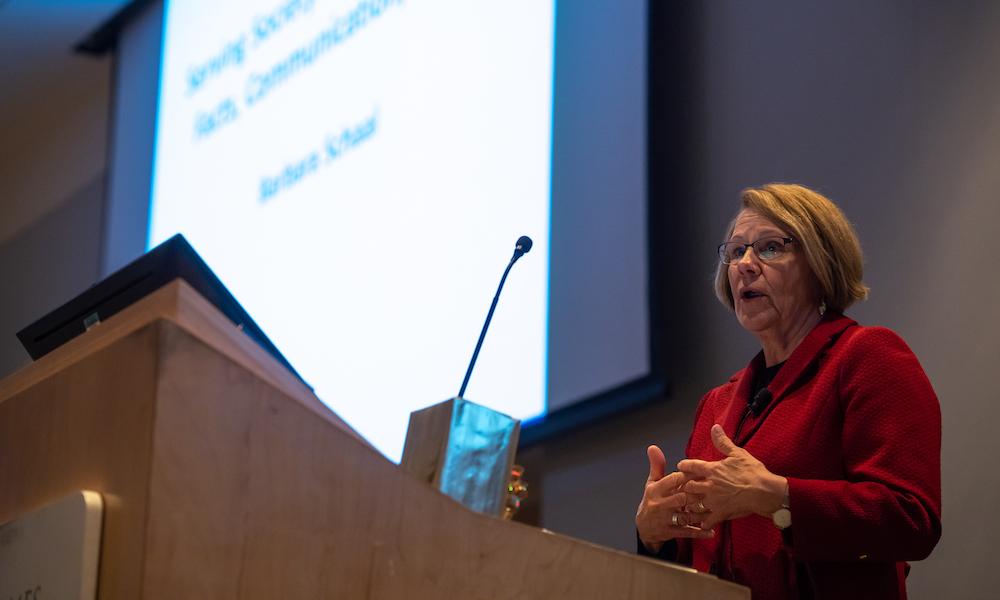The value of science
Madison Vision Series speaker calls for increased support
Science and Technology
SUMMARY: Barbara Schaal, an evolutionary biologist and former vice president of the National Academy of Sciences, delivered the final Madison Vision Series lecture of the 2018-19 academic year, "Serving Society Through Science: Facts, Communication, Policy,” on April 2.
By Jim Heffernan (’96, ‘17M)
“In an era when science is often undervalued and even under attack in the public square, perhaps no area requires thoughtful debate and reflection more than the future of science education and scientific discovery,” President Jonathan R. Alger said to kick off the final Madison Vision Series lecture of the 2018-19 academic year. “The stakes are high.”
In her talk, “Serving Society Through Science: Facts, Communication, Policy,” Barbara Schaal, an evolutionary biologist and former vice president of the National Academy of Sciences, made the case for increased support of the sciences.
“Science needs to serve society,” she said.
Before the Enlightenment period, humans relied on supernatural explanations of the world around them, Schaal said. The scientific discoveries of the past three centuries have led to significant advancements in medicine, agriculture, transportation, electronics, information technology and artificial intelligence, she said.
|
"Science should be a statement, 'This is what we know.'" — Barbara Schaal |
Still, she said, science is layered with ethical dilemmas, political bias, and individual and cultural differences that can undermine the public’s trust in its work. For example, there is widespread agreement in the scientific community today about global warming and its causes, but many people choose not to believe in it. And some individuals elect not to vaccinate their children against certain diseases despite evidence that the inoculations are effective.
Part of the problem in separating fact from opinion, Schaal said, is in how scientific discoveries are communicated. “These studies can be very complicated,” she said, adding that “many scientists feel that they have to go into incredible detail” when describing their findings.
The goal in communicating such discoveries is to increase our understanding of the natural world and to provide a basis for both individual decision-making and governmental policies, she said. “Science should be a statement, ‘This is what we know.’”
Schaal, the dean of the faculty of Arts and Sciences and a professor at Washington University in St. Louis, also said part of the responsibility for increasing support for the sciences falls on public education.
“We need to do a better job at educating the public about the value of science,” she said.
See Barbara's Madison Vision Series lecture.
###
